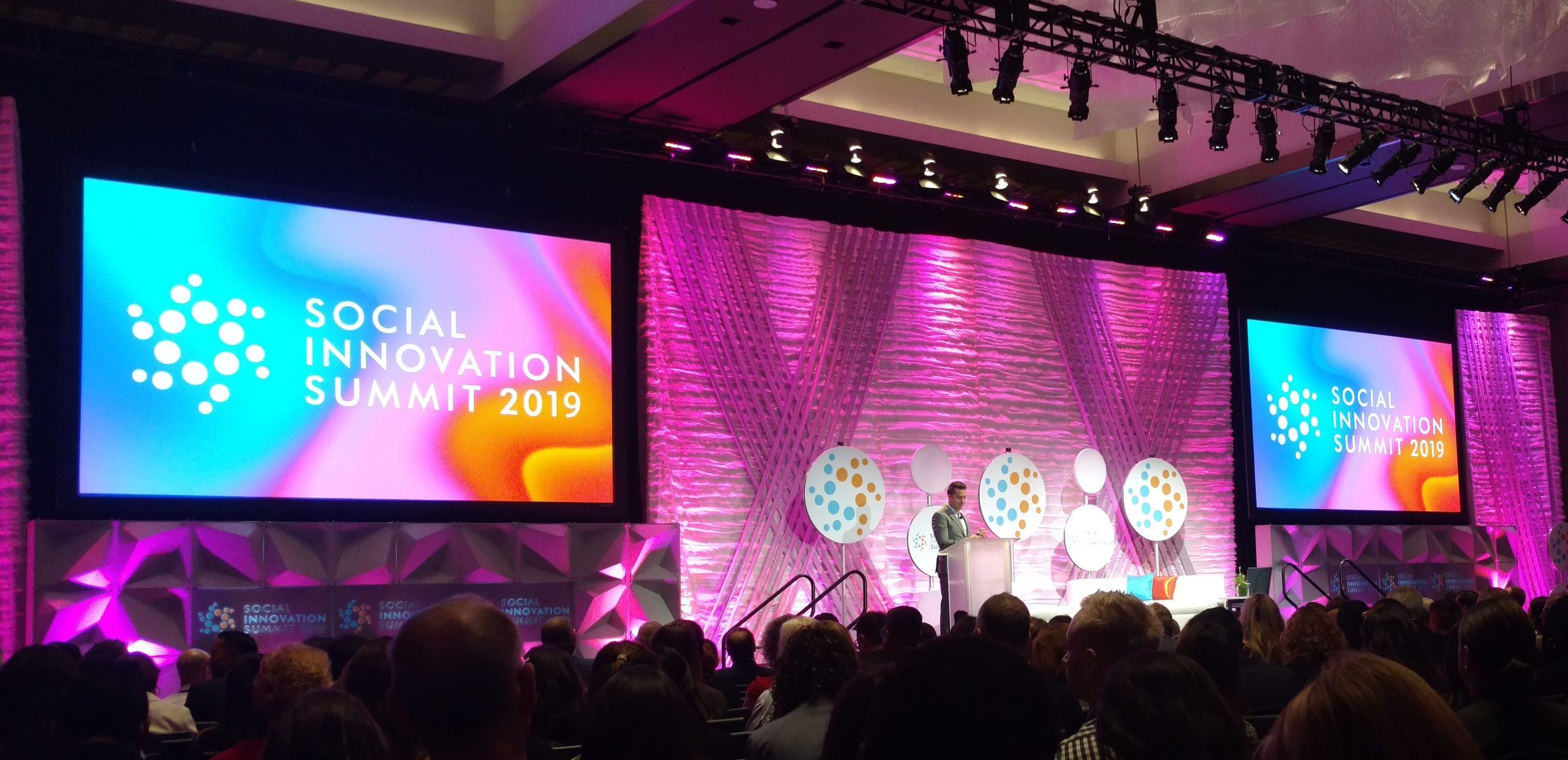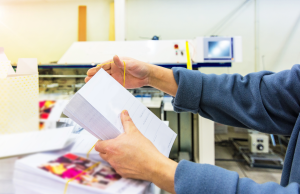Los Angeles, Calif. — Life is a series of intersections. Audience members at the 2019 Social Innovation Summit (#SIS19) here this week were asked to think about their personal intersections and how they came to their social good, profit and purpose careers.
Speaker Caroline Barlerin, global head, social innovation at Eventbrite, told of how when she was a teenager she painted her fingernails blue, which was a big deal at the time. Shortly thereafter her mother painted her fingernails blue. In a blink, she went from cutting edge to mainstream. She then asked the packed house if the profit and purpose space had gone from niche to normal and from normal to mainstream.
It was an interesting question since those practicing profit and purpose could have met in a phone booth 20 years ago. (Yes, there were still phone booths 20 years ago.) A look at the list of mainstream sponsors such as Microsoft, Wells Fargo, Starbucks and Best Buy shows the practice is now mainstream.
“Do we want to be mainstream? What’s next?” Barlerin asked the audience.
That’s why roughly 1,200 attendees were there to ponder and perhaps find a new partner for programs. The discussion often examined the questions being asked and how the answers will change based on perspective.
Lata Reddy, chair and president of The Prudential Foundation, told the story of a question she asked her parents. They immigrated to the United States to give her opportunities they did not have in India. As she climbed the corporate ladder she was invited to many social events and dinners. She asked her parents why they never taught her about the place setting on a dinner table. Their response was that before moving to the United States they didn’t have a table. They sat on the floor and ate with their hands.
Dalila Wilson-Scott, president, Comcast NBCUniversal Foundation, talked of how her parents met in Vietnam, her father an African-American serviceman and her mother a native of Vietnam. The family worked to put her in a position to where she could succeed.
They both spoke of the importance of corporate social good and the impact it has on recruiting personnel and keeping them. Community impact is vital to a successful business. Representatives of the summit’s more than 30 sponsors and partners spoke of the good they are doing in their communities and around the global via innovation and the communities of people established in the work environment.
Sam Glassenberg, founder and CEO of Level Ex, a video game maker, spoke of how doing good can have unintended positive impact. He is from a family of many doctors but he chose to make video games. When his anesthesiologist father asked him to make a video game on how to do difficult intubation so that doctors could practice the procedure, he slapped something together and uploaded it so he wouldn’t have to spend time putting it on the computers of his father’s doctor pals. A few years later his father asked how many times it had been used. The answer was more than 100,000 and by doctors around the world. Glassenberg had no idea the video game he made to appease his father was being talked about at medical conferences.
The conference was also the venue for corporate announcements of philanthropy by event sponsors. Wells Fargo announced a $1 billion commitment through 2025 for affordable housing. There is also a $20 million challenge grant.
According to Jon Campbell, outgoing head of corporate philanthropy and community relations resources, said the investment will be used to partner with organizations to develop new ideas and implement solutions in communities of need in collaboration with public- and private-sector organizations. The funding targets include homelessness, available and affordable rentals, transitional housing and home ownership.
The challenge grant is aimed at uncovering new, more rapid ways to increase the availability and sustainability of affordable housing. “Families everywhere are sacrificing necessities like food, healthcare and education in order to afford a place to live,” Campbell said. “Wells Fargo will bring local and national nonprofits and policy leaders together to better understand and address the full spectrum of housing affordability — from homelessness to rental housing to homeownership — and unlock more housing options for those in need,” he said.
Campbell’s successor beginning Aug. 1 is Brandee McHale. She was head of Corporate Citizenship at Citigroup Inc. and president of the Citi Foundation and previously worked at the Ford Foundation.











